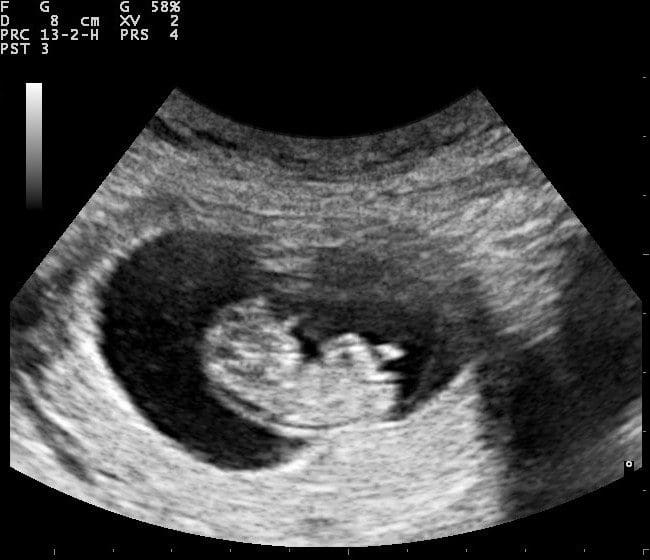Are the lives of Texas women now at risk if they experience a miscarriage or an ectopic pregnancy? A recent headline would make you think the answer is yes, but that couldn’t be further from the truth.
After experiencing a miscarriage, a Texas woman claims that her doctor refused to treat her and remove the dead fetus due to fear that she would be violating Texas abortion law. Due to this doctor’s mistake, the woman carried her deceased child in her womb for two weeks. Luckily, she was able to find a doctor who was willing to perform the procedure—because this doctor actually knew the law.
Any Texas doctor worth their salt should know that removal of a miscarried child and treatment for an ectopic pregnancy are legally not considered abortion. The Texas Health and Safety Code makes it illegal for a person to “knowingly perform, induce, or attempt an abortion.” § 170A.002(a). Texas law defines abortion as “the act of using or prescribing an instrument, a drug, a medicine, or any other substance, device, or means with the intent to cause the death of an unborn child of a woman known to be pregnant,” § 245.002(1). But an act is not an abortion if it is done with the intent to “remove a dead, unborn child whose death was caused by spontaneous abortion; or to remove an ectopic pregnancy.” § 245.002(1)(B-C)
The law states, in plain English, that these acts are not illegal.
So, why was this doctor confused? The story starts in September of last year.
Before the Supreme Court released its decision on Dobbs v. Jackson, the state of Texas passed Senate Bill 8, also known as the Texas Heartbeat Act, which prohibits doctors from performing an abortion once a fetal heartbeat is detectable. Texas Health and Safety Code § 171.204. What made Texas’ law unique, though, was that it was crafted in a way that permits only citizens to privately enforce the law through civil action.
News outlets quickly began to decry the anticipated onslaught of abortion bounty hunters that would emerge as a result of this law, but it turns out that their panic was unnecessary. No well-intentioned doctor has been sued under the law. As of this writing, only one doctor has been sued using SB 8’s mechanism, and that doctor openly admitted that he intentionally and knowingly violated the law’s provisions. Despite the media’s outcry, they haven’t reported on a single nuisance suit as a result of the law.
Moreover, the Heartbeat Act is essentially superfluous now. After the Supreme Court’s ruling in Dobbs, Attorney General Ken Paxton announced that Texas’ pre-Roe abortion laws are back in effect, allowing the state to enforce limitations on abortion starting at the moment of “fertilization,” as seen in Texas Health and Safety Code § 170A.001(5). Currently, there’s no reason for private citizens to undertake the pains of civil litigation when the alternative is to report a violation to the authorities who can handle it from there.
So, if private citizens are not frivolously coming after abortion doctors under the Heartbeat Act, why was this Texas doctor afraid to treat her patient? News outlets claim that the danger faced by Texas women is due to “confusion” about the penalties faced by doctors who break the law and not by the requirements of the law itself.
According to a recent article by The Texas Tribune, there is no question that “miscarriages, known as ‘spontaneous abortions’ in medicine, and ectopic pregnancies, in which a fertilized egg grows outside of the uterus and becomes unviable, do not count as abortions.” If doctors are refusing to treat miscarriages or ectopic pregnancies, the article claims it’s due, instead, to a “lack of clarity accompanying the threat of jail time and six-figure fines for medical professionals.”
In reality, doctors have no cause for concern when treating miscarriages or ectopic pregnancies because such treatments are not abortions. There’s no penalty for doing what is legal. The true confusion in the text of the law arises from “the exemptions that exist for the woman’s life or health, or because of a ‘medical emergency.’” The Tribune article points out that “these terms are left vague or undefined.” What’s not vague is the law’s exception for the treatment of a miscarriage or an ectopic pregnancy. Those procedures are not considered to be abortion.
Frankly, doctors who are refusing to treat their patients due to a misunderstanding of the law should be more concerned about the threat of a malpractice suit. If there’s any threat to women in Texas, it comes from doctors who have been misinformed by a media intent on ensuing panic. Whether it’s articles that conflate ectopic pregnancy and abortion or sensational headlines claiming that women are being forced to carry dead fetuses for weeks on end, the goal is the same—to mislead and misinform Texas women.
They say you shouldn’t mess with Texas women. You really ought not lie to them either.
This is a commentary published with the author’s permission. If you wish to submit a commentary to Texas Scorecard, please submit your article to submission@texasscorecard.com.





